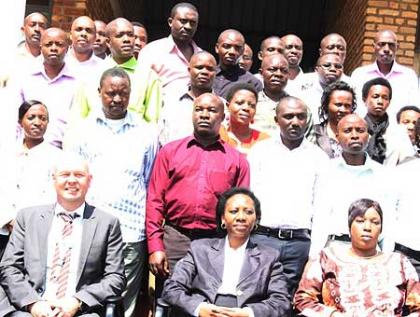JUDGES are not fully exploiting the existing international human rights instruments that the country has ratified, the Deputy Chief Justice, Sylvie Kayitesi Zainabu has said.


JUDGES are not fully exploiting the existing international human rights instruments that the country has ratified, the Deputy Chief Justice, Sylvie Kayitesi Zainabu has said.She made the remarks yesterday while officiating at the launch of a two-day workshop on the application of international human rights law in Rwandan courts.The training, which brought together 47 judges from across the country, aims at building the capacity of Intermediate and Primary Courts’ judges on incorporating international human rights law in the domestic judicial system.Organised by the One UN Rwanda, in collaboration with the Supreme Court and the Institute of Legal Practice and Development (ILPD), the workshop is the final training of a capacity-building programme on International law of Human Rights, which has reached more than 160 judges across Rwanda since January.Kayitesi reminded the judges that the international human rights law has precedence over the national laws, as stipulated in the constitution. The same applies to other international treaties and conventions that Rwanda has ratified, she stated."Since the international law is part of our legal system, we are required to apply it,” she said.Rarely used According to Madeleine Nirere, the chairperson of the National Human Rights Commission, Rwanda has ratified eight of the nine core International Human Rights Instruments. The process of domestication of some of them has been completed, she added."Unfortunately, a look at the recent judgments, shows that these instruments are rarely referred to during court proceedings,” Nirere said. "May be it is because their contents are not known (by the judges),” she alluded, before reminding the judges that ‘every legal case is a human rights case.’"Therefore, there can be no justice without human rights reference, respect and compliance,” Nirere added.Auke Lootsma, the United Nations Development Programme (UNDP) country representative, commended Rwanda for its efforts to pursue reforms in the justice sector and strengthen the independence of the judiciary."The strengthening of the judiciary and the rule of law is one of the major objectives of Rwanda’s development strategy. Access to justice for all and the skills of judicial personnel is at the heart of this strategy in order to guarantee the protection of everyone’s rights,” Lootsma said.


